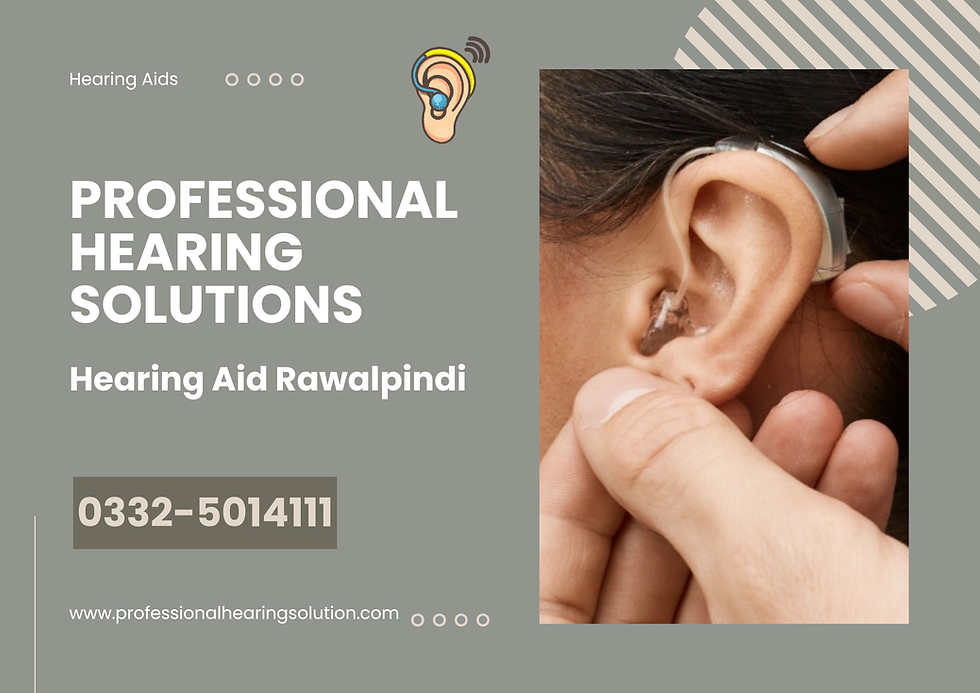What Are The Benefits Of Digital Hearing Aids?
- Hearing Solutions

- Aug 27, 2022
- 3 min read

People with hearing loss should use hearing aids. The hearing aids we have today have been around for a while, but they were analogue. That is to say they were not digital and the information was processed by a microchip in the device and sound waves were processed as well in order to amplify them.
What is a Hearing Aid?
A hearing aid is a small electronic device that you wear in or behind your ear. It makes some sounds louder so that you can hear them better. Hearing aids can help people who have hearing loss.
Hearing aids do not restore normal hearing. They make it easier for people to communicate with others and participate in daily activities. There are many different types and models of hearing aids, and each type has its own benefits and drawbacks.
The most important factor in choosing a hearing aid is finding one that meets your individual needs. You will also want to consider your lifestyle, budget, and the severity of your hearing loss when choosing a hearing aid.
If you have mild hearing loss, you may be able to get by with a less expensive hearing aid that amplifies sound but does not provide all of the features of more expensive models. If you have moderate or severe hearing loss, you will likely need a more sophisticated hearing aid that provides more features and customization options.
Digital hearing aids are the most advanced type of hearing aid available today. They use computer chips to process sound, which allows them to provide a variety of features and customization options that are not available with analog hearing aids.
Types of Hearing Aids
There are many types of digital hearing aids available on the market, each with their own set of features and benefits. Just a handful of the most common varieties are listed below:
In-the-ear (ITE) hearing aids: These hearing aids fit directly into the ear canal and are virtually invisible when worn. They are ideal for people with mild to moderate hearing loss.
In-the-canal (ITC) hearing aids: These hearing aids are slightly larger than ITE hearing aids, but still fit snugly into the ear canal. They are also less visible than ITE hearing aids and are ideal for people with mild to moderate hearing loss.
Behind-the-ear (BTE) hearing aids: These hearing aids rest behind the ear and connect to an earpiece that fits inside the ear canal. BTE hearing aids are larger than other types of hearing aids, but they offer a number of advantages, such as being easier to handle and more durable. They are also a good choice for people with more severe hearing loss.
Receiver-in-canal (RIC) hearing aids: These Hearing Aids have a small receiver that sits in the ear canal, connected to a clear plastic
The Benefits of Digital Hearing Aids
If you're considering a hearing aid, you may be wondering if digital hearing aids are worth the extra cost. Here's a look at some of the benefits of digital hearing aids:
1. Better sound quality. Digital hearing aids convert sound waves into digital signals that can be processed to improve clarity and reduce background noise. This can provide a more natural listening experience.
2. Greater customization. Digital hearing aids can be programmed to your specific hearing loss, which can make them more effective than traditional hearing aids.
3. More features. Digital hearing aids often come with features that aren't available on traditional models, such as the ability to connect to Bluetooth-enabled devices or stream audio directly to the hearing aid.
4. Increased durability. Because digital hearing aids don't have any moving parts, they're often more durable than traditional models.
5. Lower price tag. Although digital hearing aids tend to be more expensive than their analog counterparts, the price difference has been narrowing in recent years.
Conclusion
Digital hearing aids offer a number of benefits over their analog counterparts. They are more efficient, providing a better sound quality while using less battery power. They also allow for more customization, so that each person can have their hearing aid tailored to their specific needs. In addition, digital hearing aids are easier to use and maintain than analog models. If you are considering a hearing aid, be sure to ask your audiologist about the advantages of digital hearing aids.
www.professionalhearingsolution.com








